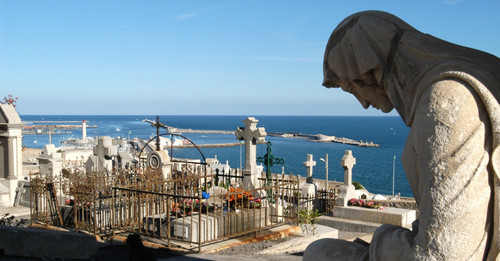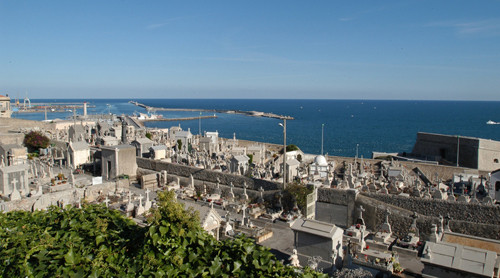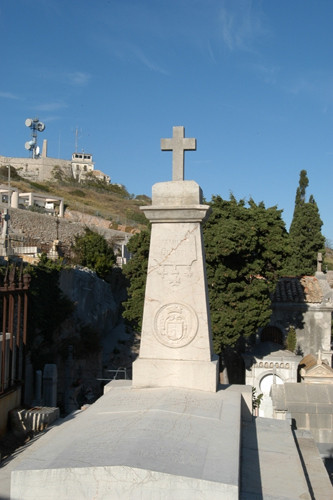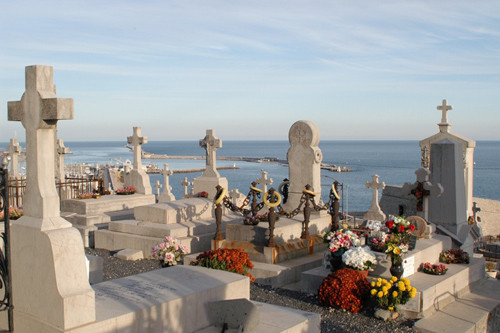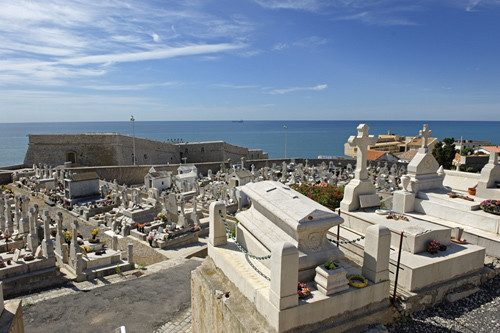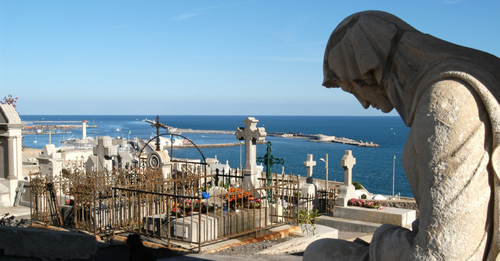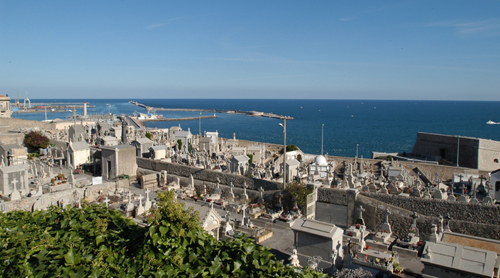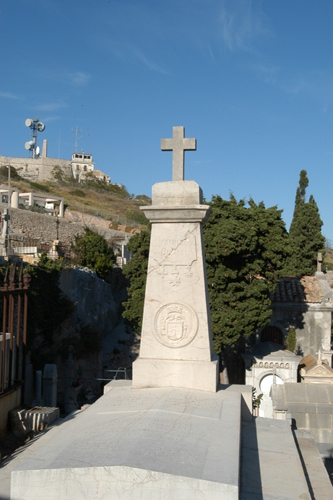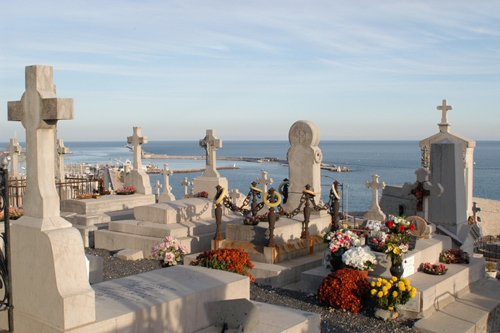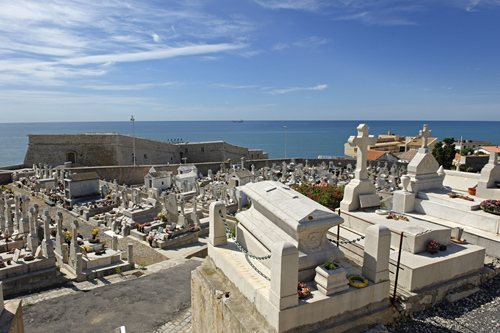LE CIMETIERE MARIN
Sète Lieux de mémoireContact
LE CIMETIERE MARIN
40 Chemin du Cimetière Marin
34200
SETE
Presentation
In about 1680 the Saint-Charles cemetery was created so that the first workers who died on the Saint-Louis jetty construction site could be buried.
It bears witness to the diversity of the city's population over subsequent centuries and has been extended by adding successive plots, one of them reserved for the protestant community who played a vital role in expanding the port in the 18th and 19th centuries. It is also called the "cemetery of the rich”, as opposed to the "cemetery of the poor” located opposite the Etang de Thau lagoon (where Georges Brassens is laid to rest).
A number of the graves are reminders of the city's maritime calling, such as the one for sailors who disappeared while helping a ship in distress, and the one for the young, aspiring mariner Eugène Herber who was killed in Beijing in 1900.
Wandering along the pathways, you will appreciate the architectural beauty of some of the tombs.
It bears witness to the diversity of the city's population over subsequent centuries and has been extended by adding successive plots, one of them reserved for the protestant community who played a vital role in expanding the port in the 18th and 19th centuries. It is also called the "cemetery of the rich”, as opposed to the "cemetery of the poor” located opposite the Etang de Thau lagoon (where Georges Brassens is laid to rest).
A number of the graves are reminders of the city's maritime calling, such as the one for sailors who disappeared while helping a ship in distress, and the one for the young, aspiring mariner Eugène Herber who was killed in Beijing in 1900.
Wandering along the pathways, you will appreciate the architectural beauty of some of the tombs.
Destination
LE CIMETIERE MARIN
40 Chemin du Cimetière Marin
34200
SETE
GPS coordinates
Latitude : 43.3945615
Longitude : 3.69157361




